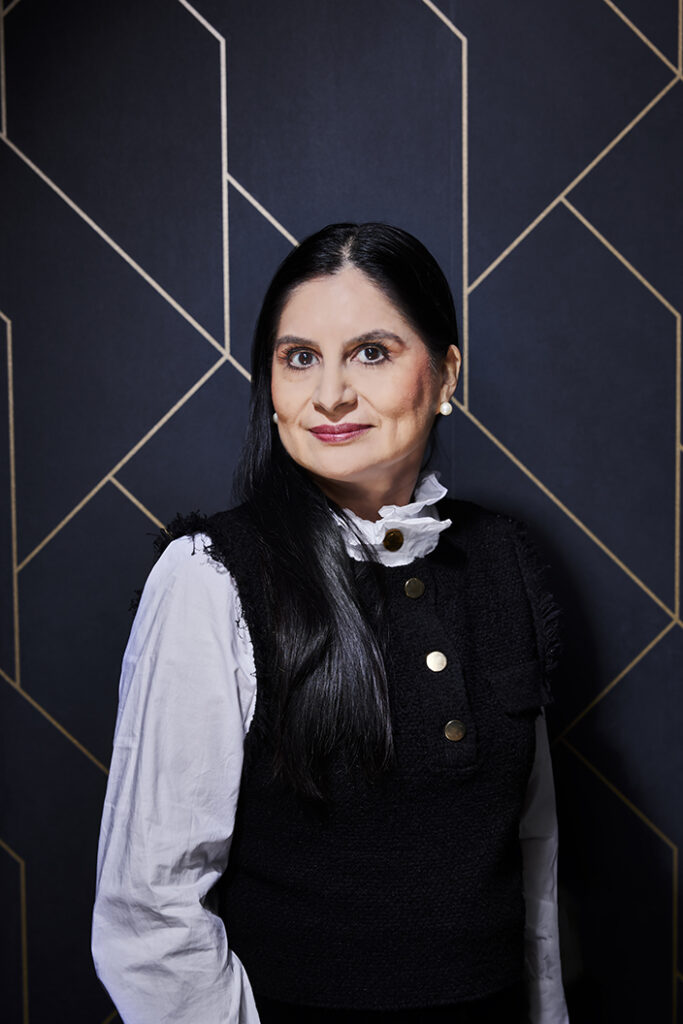These six remarkable women exemplify what it truly means to be a change maker.
By Janaye Barabin. Photos by Annie Ray. Styling by Teresa S. Test. Jewelry by Avant Garde Jewelers. Makeup by Adela Touvell of Kiss N’ Makeup. Hair by Michael Dunn of Deco Blue Salon. Shot on location at Wilco Workspaces. Special thanks to Hailey Harrell.
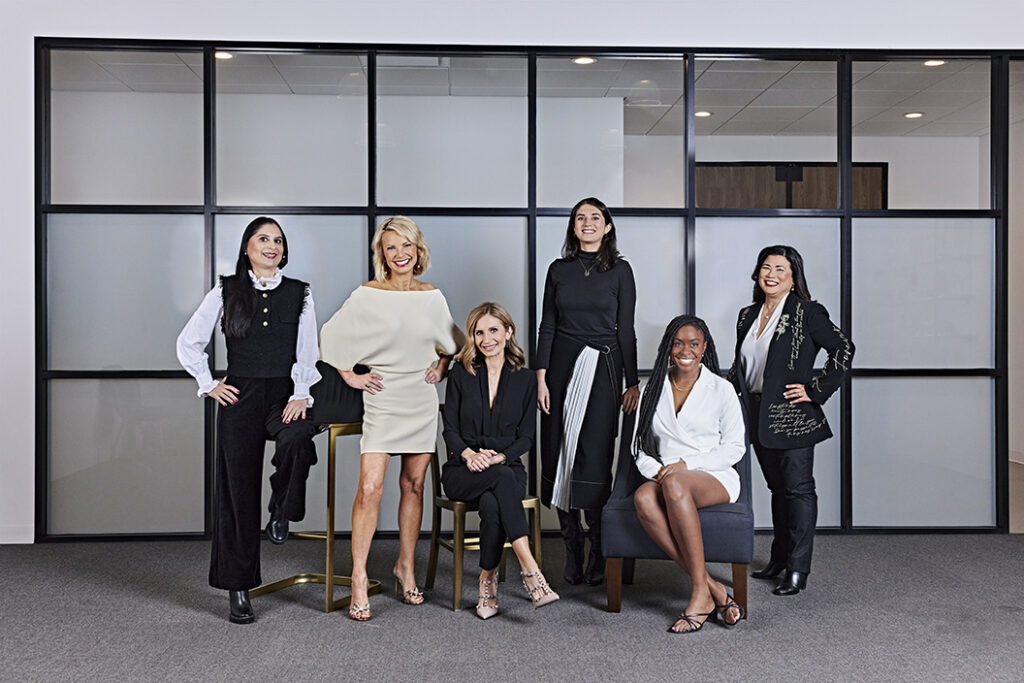
Austin Woman’s inaugural Change Makers issue highlights six women in Austin’s community who are changing the city’s landscape for the better. These women embody what it means to be a change maker. Despite the numerous obstacles each of them have faced, they have taken each challenge as an opportunity to grow and learn. Their stories are varied, but the one thing that connects them is their passion; each woman has a passion that drives them forward. These women forge their own paths when there isn’t one. They’re the kind of women who create their own methods when the existing ones don’t work. They look out for the people society disregards. They are dreamers, thinkers and pioneers.
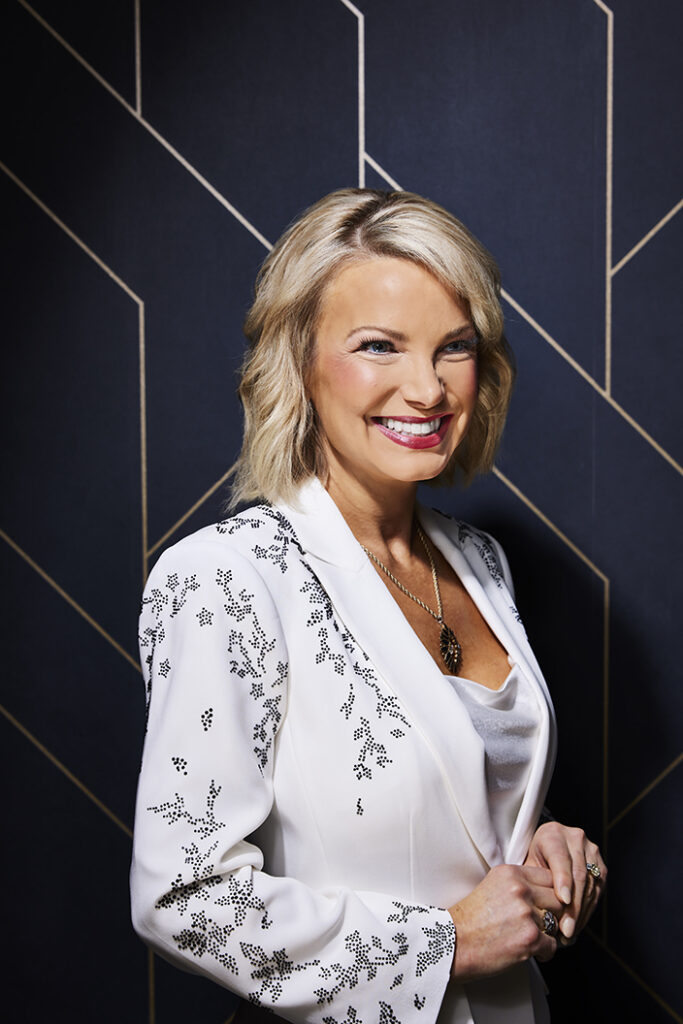
Lawton Cummings
General Partner at Capital Factory
After a recurrence of breast cancer, Lawton Cummings decided to shift gears. “I needed to do something that kept me intellectually engaged but also in a positive mindset,” she says. “I [went]back into litigation, and I love the intellectual side of it, but I prefer the building of something. I love to learn about complicated things. It’s a very high-trust situation because in venture we’re investing really early, and then we help them grow.”
In 2020, she took a job as a partner at Notley, a local venture nonprofit that, according to their SXSW bio, invests in “a diversified mix of investments to fund and operate multiple initiatives across various sectors of need.” There, Cummings was able to both invest and do nonprofit work. “I learned a great deal in those two years, and I really fell in love with early-stage investing.” During her time at Notley, she met Joshua Baer, CEO and founder of Capital Factory. “We worked together doing some nonprofit work that we both love,” Cummings remembers, “and we geeked out over AI.” After Cummings expressed a desire to do more, Baer offered to make her a general partner at Capital Factory.
Cummings recognizes that many women and people of color face barriers that prevent them from building wealth, and is doing what she can to help. “That’s a big problem,” she begins. “How do you build enough wealth to secure yourself and your family? A great way to build wealth is to invest in things like venture funds, but some funds require anywhere from $250,000 to a $1 million minimum investment. Venture funds tend to have very high minimums, so the amount of women and people of color who invest in them is extraordinarily small. That really made me ask why. Are we more risk averse? Do we not know? Or do we not have the capital to begin with? That’s why it was important to me to lower the minimum for people who have been traditionally locked out, like women and people of color. Forty percent of my investors are women, and 51% are Black and Latinx out of 85 investors. For the 11 founders invested in, 36% are women. It’s not because we’re focusing on it. My fund doesn’t focus on it. We’re simply looking for the best.”
Lisa Jauregui
Founder and CEO of BK Beauty
When Lisa Jauregui started her YouTube channel nine years ago, her goal wasn’t to start a business. Despite her background as a professional makeup artist, she didn’t think the channel would go anywhere. “I didn’t even know people were monetizing it, which was good,” she admits. “I think if I would have gone into it expecting something, I would have gotten discouraged. I did it for three years just for fun. I didn’t think what I was doing was that important.” It began as a creative outlet, but she was surprised when people reached out to her after she took a month off and stopped making videos. “I had a bunch of viewers reaching out to me to see if I was okay. After that, I put my all in and grew the channel.” Then in 2019, she launched BK Beauty with the money she saved from YouTube ads.
The inspiration for the brand name came from her daughters, Brooklyn and Kate, and the values she wanted to teach them. “When I was a young mom, I was growing as a woman and gaining more confidence in myself,” she says. “My perception of beauty and makeup was shifting. I struggled with the idea that I was teaching my kids that putting on a bunch of makeup is what makes you beautiful. That wasn’t what I wanted to teach my kids.” As Jauregui reflects on the inspiration for BK Beauty, her smile grows, showcasing her genuine passion. “I wanted them to know that true beauty comes from a place inside by being kind to others and yourself. I struggled for a long time because I didn’t give that kindness to myself. That was what I wanted to teach them, that true beauty is kindness.”
Jauregui’s authenticity has helped her build her audience and truly connect with people. “My whole thing was to teach women makeup in an attainable and easy way. I was a young mom, and my approach to makeup was a little different. I tried to connect with women in that stage of life to make makeup easier and less complicated. It didn’t need to be 16 steps,” she insists. “You could still feel and look your best with something that was easy to wear every day. It can be very overwhelming sometimes, especially with all the products out there. But ultimately, if you feel great, wear it. It’s not about what’s right and what’s wrong, or if you’re this age don’t wear this. If you love it, who cares what everyone else does? Embrace it.”
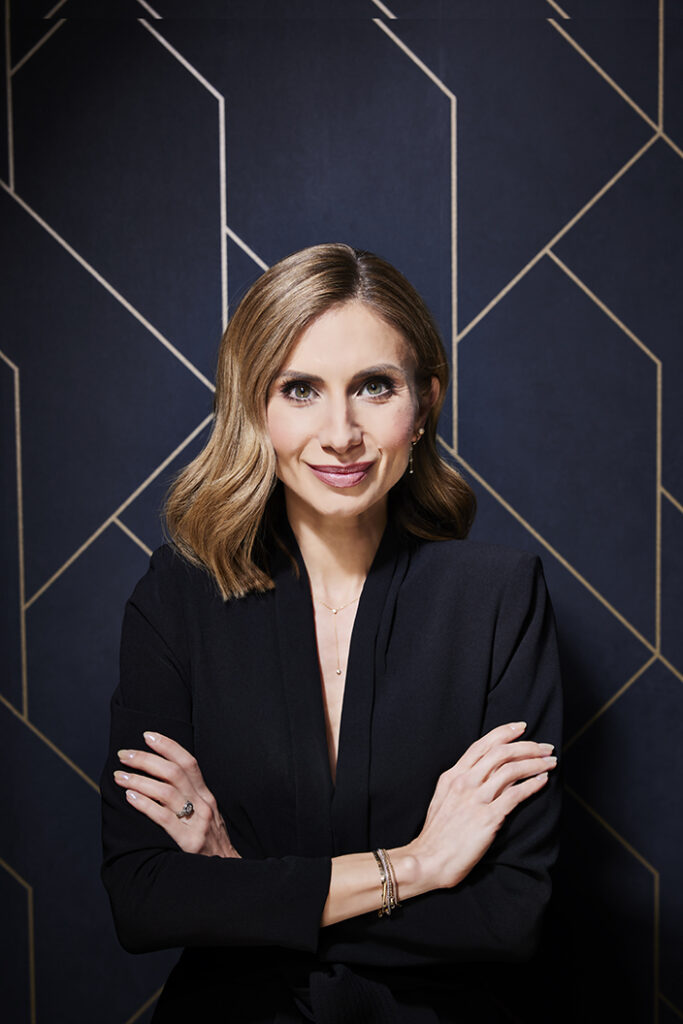
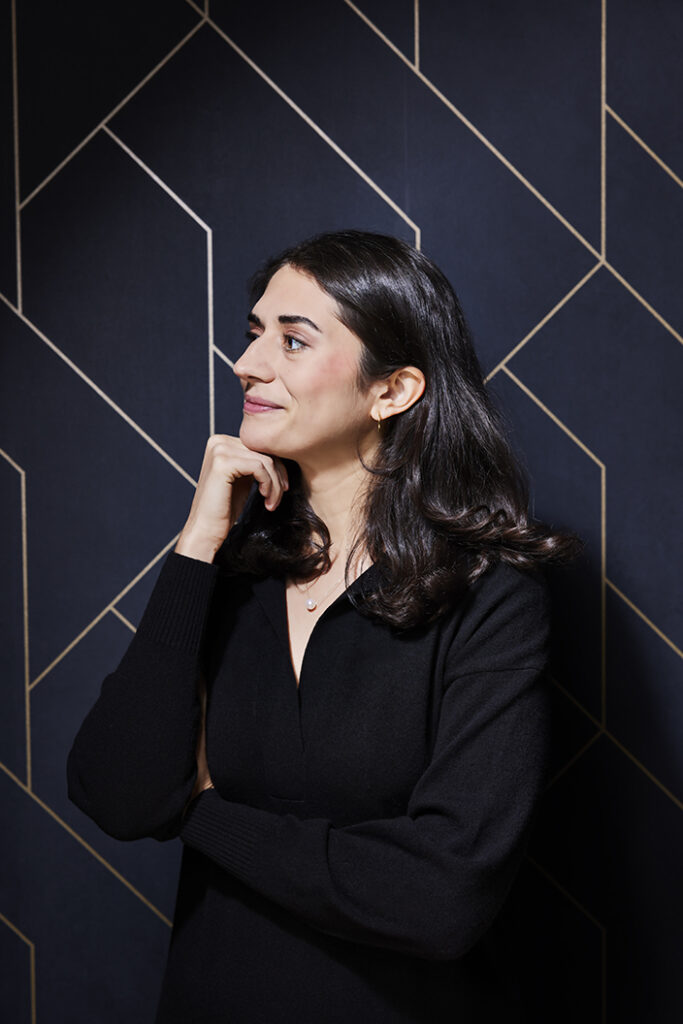
Maleka Momand
Co-Founder and CEO at Esper, Forbes 30 Under 30
Maleka Momand first thought of the idea for Esper when she worked for a venture capital firm in San Francisco. “That was my first exposure to how complicated policymaking and regulation can be,” she recalls. “It led me down a path of asking government agencies how they create and manage policy, and I realized there was no technology to manage it.” After discovering how complicated the process was, she started to think about how she could simplify it. “We wanted to build this operating system for the government to help them manage it. We started in 2018, and in the same year, we moved our headquarters from San Francisco to Austin and set up shop. Today, we work with more than 60 government agencies across the United States, from the NYPD to the State of Iowa.”
Momand and Co-Founder Lilli Oetting had what some may consider an unorthodox relationship. “We were introduced through an acquaintance, and we didn’t know each other that well before going into business. It’s a little unconventional, but we built a lot of trust over the last six years building the company together.” Momand believes that this is a benefit rather than a hindrance. “Sometimes when you’re friends with someone you can almost be too nice and become a yes man. Because we didn’t know each other, we really defended our opinions and argued and talked it out to find the right answer. I think it was a bonus.”
Esper has had amazing growth during these five years, and the two co-founders were even featured in Forbes’ 30 under 30 list for social impact in 2022. Momand appreciates the material gains the company has made, but she makes it a point to not let that make her complacent. She’s focused on achieving a high level of success, for her and her team. “I’m really proud of the team. Most importantly, we’ve been able to successfully promote people internally to director and senior-level positions. A lot of times, startups will hire out, but we’ve been able to nurture really great people and give them opportunities for career growth.” It’s clear to see how much Momand appreciates her team, as her tone becomes full of admiration when she praises them. “They’ve crushed it, and we’ve seen that a lot this year. These are great people who I want to work with over and over again, so I’m really proud of the team we’ve built.”
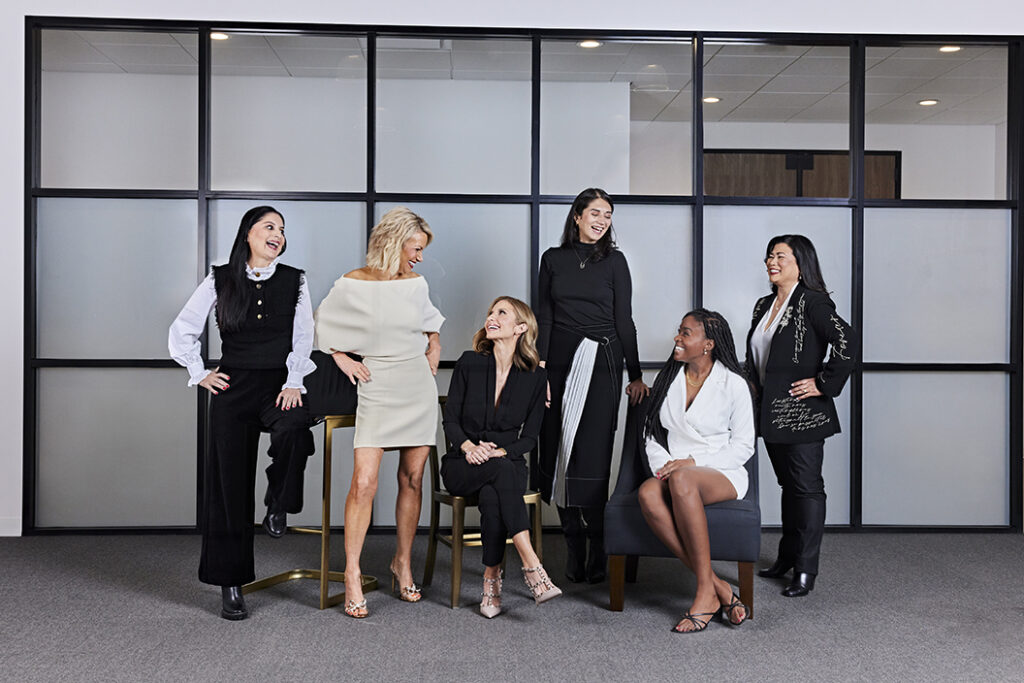
Janice Omadeke
Author of Mentorship Unlocked, Serial entrepreneur, exited CEO and
Founder of The Mentor Method
nice Omadeke founded The Mentor Method, an enterprise platform that matches underrepresented employees to mentors at the company where they work. She became one of the first Black women to raise $1 million in institutional funding, and Austin’s first Black woman to have a venture-backed tech exit.
After The Mentor Method was acquired, Wiley Publishing reached out to Omadeke about writing a book on mentorship. “Since I didn’t have mentors, I relied heavily on books to help me understand how to level up my professional acumen, and I often didn’t see myself reflected in those,” she reveals. “The authors typically came from a certain point of privilege, or were already the COO of global companies. This book is my opportunity to make sure that professional development is accessible to everyone by sharing my lived experiences and how I leveraged mentorship to excel in my career. So when Wiley invited me to write this, I started reflecting on my own journey.”
When writing Mentorship Unlocked, Omadeke strived to make it as accessible as possible. “I wanted it to be something that was approachable for all the people who felt left out of other professional development books. My book is very detailed, so it empowers the reader to build their network and create a career that is fulfilling and sustainable.” She wanted to ensure that the readers would be fully equipped to build successful mentor relationships. “It’s relatable but very strategic, tactile and practical. The reader should walk away with strategies on how to build their network of mentors throughout the entire span of their career.”
Though many would call her a success, there’s more that she wants to do. “I am grateful for the mentorship and the resources and opportunities I’ve been afforded to even reach [these]milestones. However, I don’t feel like I’m done in my career,” she insists. “There’s so much more I want to do. Success for me right now is feeling content with my life knowing there is a bright future ahead. There’s more work to be done in enhancing the way professionals are able to connect and build fulfilling careers. That’s what success looks like for me, helping other people define their measures of success and helping them accomplish that in their own careers.”
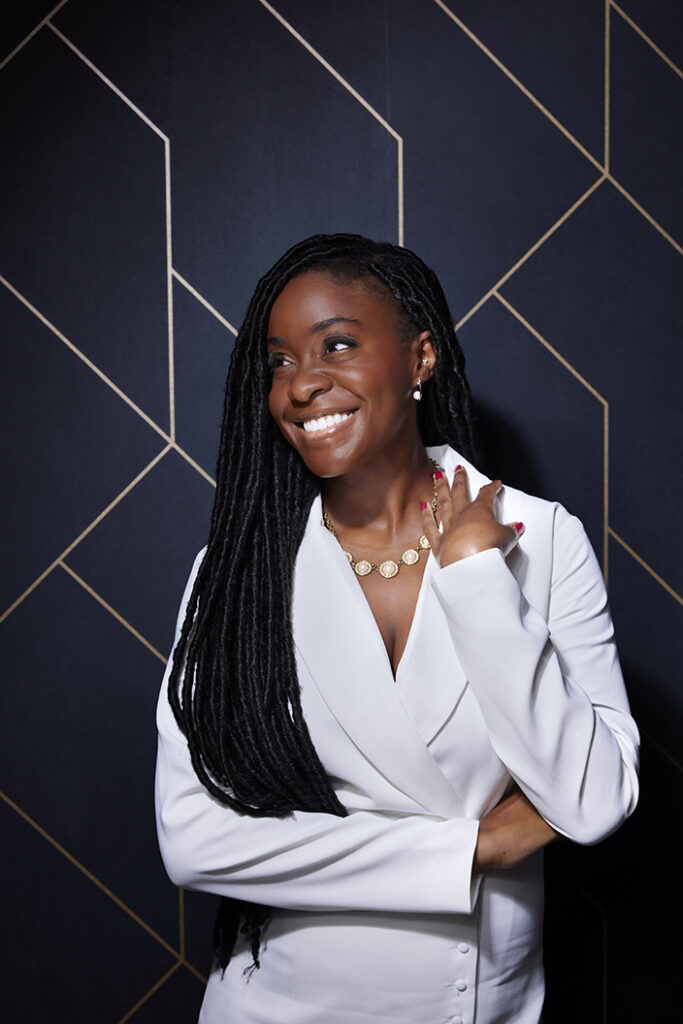
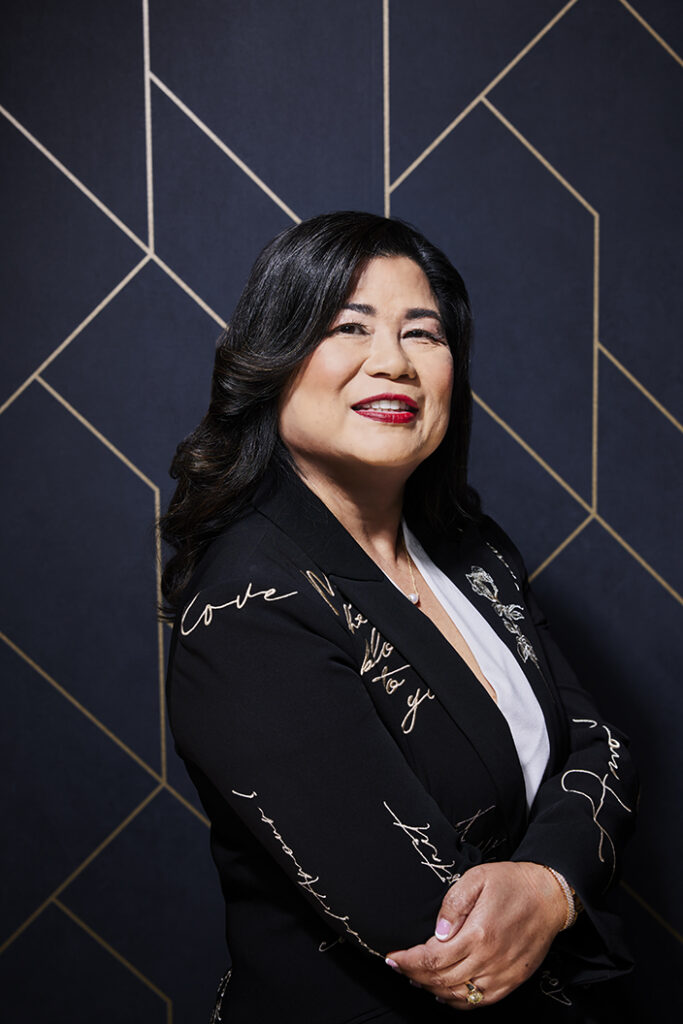
Emily Rollins
Owner of Town Square NW Austin
After their dad suffered a stroke in 2019, Emily Rollins and her siblings had to decide whether or not he would be in assisted living. Like many families, the siblings struggled with their decision. “It’s either you do it all on your own, which leads to stress and eventually giving up—and home care is extremely expensive, and not as engaging—or you could put them in assisted living, and some folks start to decline.” Rollins made the decision to invest in Town Square, a senior day care modeled after a small town, to provide an alternative for those who may be struggling to choose between home care and assisted living for the seniors in their lives.
The team at Town Square is very well trained. Each employee is required to go through multiple training programs, as well as a comprehensive program by Tam Cummings, one of the most renowned gerontologists in Texas. The center was designed especially for seniors who were diagnosed with Alzheimer’s disease and dementia, as a way to keep them engaged. “We’re really trying to build a sense of community here for a large portion of the population that people probably just ignore,” Rollins says. “I think there’s a lot of folks who think social security takes care of everything, but there’s so much financial need. We provide support groups for their caregivers and loved ones, and we talk about mental, physical and financial health so they’re not lost, giving them the tools they need so that they don’t feel so alone.”
Rollins’ goal is to make care accessible to as many people as possible. “We’re doing everything we can to not let money be an issue,” she says. “There’s such a wealth of people in that generation that just become invisible to the rest of the community, and we get to make them visible again. People have friends here; they have people they like to talk to and people they eat lunch with. They feel like they’re part of something versus just being cast aside. I never thought I would do this, but it’s the most fulfilling work I’ve ever done in my entire life.”
Ana Villegas
Latinitas Board Director
Ana Villegas grew up in Peru but moved to the U.S. when she decided that she wanted to grow her career. “I went into engineering and found a job in Peru where I worked for eight years while doing a master’s in finance and marketing at night,” she recalls. “I knew I could grow my career even more in the U.S. because there were more opportunities, so I applied for an MBA at Kellogg. I was on my own, but I had my spirit and a belief in myself that I was gonna make it happen.”
Villegas stayed with a friend after graduating and worked several jobs just to stay in the U.S. “After six months, I found an opportunity with Dell. It was operations and not marketing, but at the time it was the only door I had at the moment, so I took it.” She struggled during her first years until she learned how to navigate the environment. “I was clueless and didn’t know about networking or anything,” she admits. “I had to learn the playbook of corporate America. I stayed at Dell for 16 years and moved up the ladder as years went by. Eventually, I was approached by one of my mentors, who had just become the chief marketing officer at National Instruments (NI). She wanted me to join her as vice president of demand operations in marketing at NI. I was super scared because it was my first time leaving the world of Dell, but I learned. Then the CMO left to become CMO of IBM, so I went for the role and I got it.”
Villegas attributes her resilience to her grandmother, who she counts as one of her biggest inspirations. “My grandma has always been my main role model,” she says. “With no college education, she co-founded an organization for women who had been abused. She dedicated her life to this and would give whatever she had. People would scream at her and even come after her. [She believed] she made an impact. That level of giving back, no matter what, that’s what keeps me going. The more I do, I think about who else I can help.”
